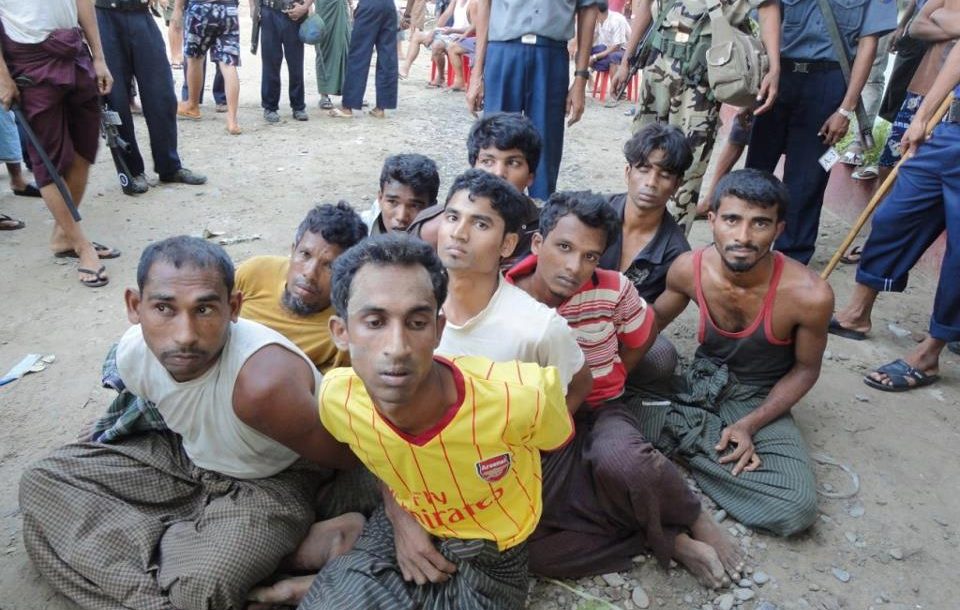Persons rendered stateless enjoy far fewer protections than refugees under international law, but the UN could be empowered to come to their defence, Farhaan Uddin Ahmed writes.
According to the United Nations High Commissioner for Refugees, there are over 10 million people around the world who are stateless due to denial of nationality by their home states. As a result of their lack of nationality, they are, in most cases, denied access to education, healthcare, employment, social security, and other basic social structures.
In many cases, not only are they denied nationality and the benefits of citizenship, they are also actively persecuted by the various governments within whose territories they reside. Since a vast majority of the UN member states (104 out of 193) are not signatories to the Convention relating to the Status of Stateless Persons, 1954 and the Convention on the Reduction of Statelessness, 1961; they have no legal responsibility to provide basic rights and benefits to the ‘stateless’ people residing within their territories. Therefore, the ‘stateless’ are neither treated as aliens nor granted certain basic rights that are assured to a refugee.
One example where this issue has been elaborately illustrated is in the plight of the Rohingya in Myanmar. The Rohingya are an ethnic group predominantly living in Myanmar’s Rakhine State. In 1982, the then newly enacted nationality law of Myanmar denied citizenship to the Rohingya, thereby technically making them stateless.
The Rohingya have been and are still being subjected to persecution by the government of Myanmar, which has led many of them to attempt to leave Myanmar and take refuge in neighbouring Bangladesh and other Southeast Asian countries. Most of the countries have been quite apprehensive about accepting the Rohingya as refugees and have not treated them well.
With the rise in violence in the Rakhine region, the plight of this minority group is a great cause for concern. Those who are able to leave Myanmar and seek asylum abroad automatically become refugees and are protected as such under international law, thereby granting them certain basic human rights and legal protections. However, the same cannot be said about the ‘stateless’ Rohingya still living in the Rakhine State as they are being actively persecuted by the government of Myanmar. Since Myanmar is not a signatory to the UN’s conventions on statelessness it has no responsibility to provide basic rights and benefits to the ‘stateless’ Rohingya. Therefore, the Rohingya are neither treated as aliens nor are granted certain basic rights as refugees under the Convention Relating to the Status of Refugees, 1951.
The international law with regard to the treatment and protection of refugees is quite strong and is generally adhered to by states. However, the same cannot be said about the international law with regard to the treatment and protection of the stateless. The two UN Conventions and most of the international law in this regard are largely ineffective and non-existent.
Nonetheless, Article 15 of the Universal Declaration of Human Rights provides everyone with the right to a nationality and protects against arbitrary deprival of the same. With this in mind, it is evident that a new and effective mechanism is required to protect the rights and freedoms of these stateless communities.
One possible solution to the problem could be the establishment of a mechanism where the United Nations can directly or through one of its agencies intervene by exercising diplomatic protection in case of stateless individuals or groups as and when it is required. The adoption of the Articles on Diplomatic Protection submitted by the International Law Commission (ILC) to the General Assembly with an amendment to Article 8(1) to add the UN alongside a state can be one of the means of legitimising the UN’s exercise of diplomatic protection.
If the United Nations or one of its authorised agencies were allowed to provide diplomatic protection in case of the ‘stateless’, it would ensure proper treatment of these people within the territory of any state and could consequently incentivise a nation to treat these people in accordance with the international law for the treatment of aliens.
Furthermore, through the exercise of diplomatic protection, the UN would also be able to seek reparations in case of injury on behalf of the ‘stateless’ in various national and international legal fora. All of this would lead to the fair and equitable treatment of the ‘stateless’ communities across the world and provide them with an avenue to seek relief and respite from their plight.
It is entirely logical that states will protect their own citizens against the arbitrary acts of another state. However, in the case of the stateless, there is no such entity that protects them against mistreatment. The opportunity, and need, is there for the United Nations, a world organisation, to step in to fill this vacuum and protect these people. Because, fundamentally, even if they are not citizens of any particular state they are nonetheless citizens of the world.
Farhaan Uddin Ahmed is a Lecturer in Law at the School of Law, BRAC University; specialising in International Law and Jurisprudence.
This article is a collaboration with Policy Forum — Asia and the Pacific’s leading platform for policy analysis and debate.
 Facebook
Facebook  Twitter
Twitter  Soundcloud
Soundcloud  Youtube
Youtube  Rss
Rss 